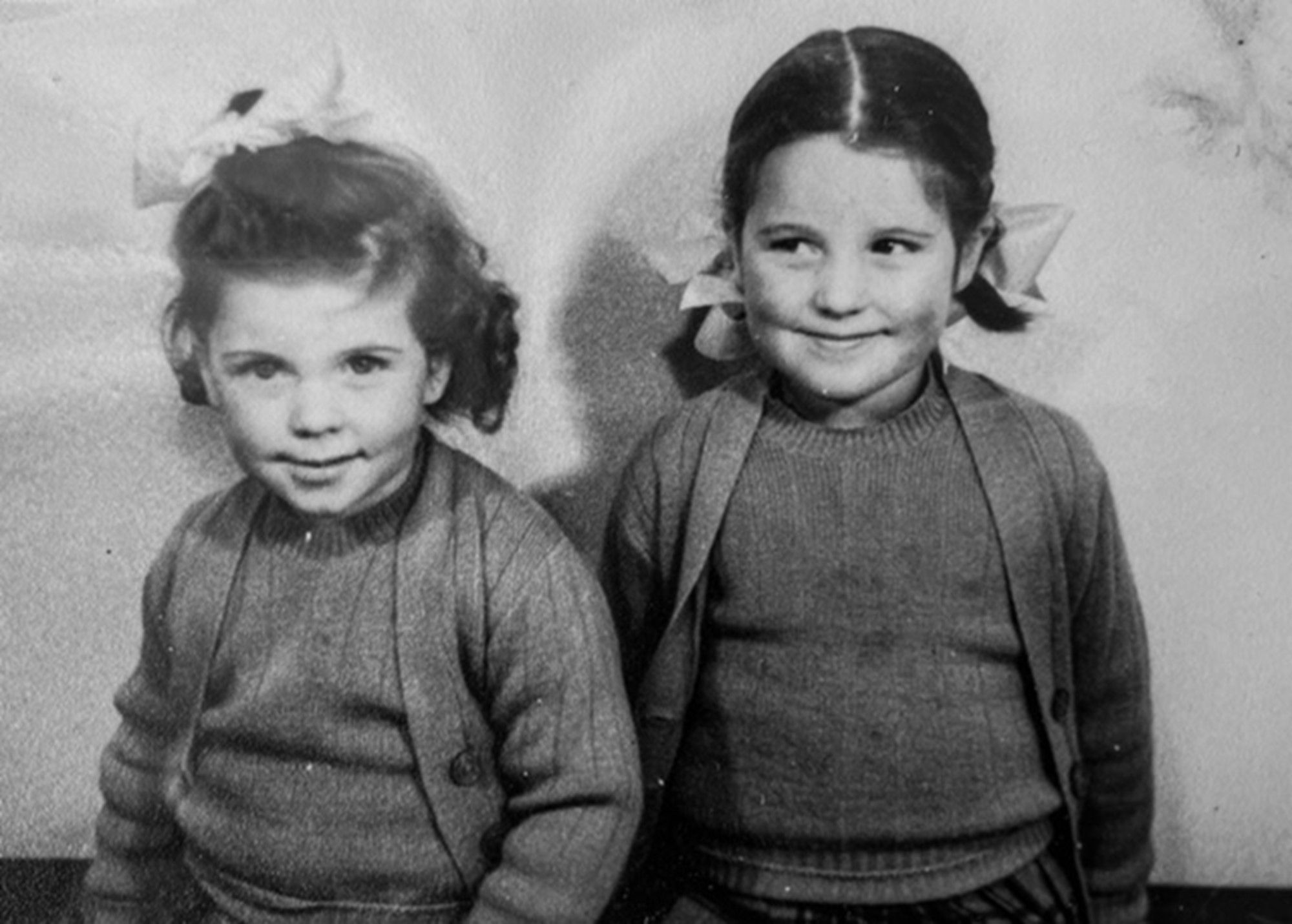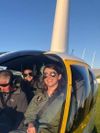Interview with a Yesteryear Te Kura Student from 1952

Jonny Ray: What was Te Kura like when you were a student?
Pip: What was Te Kura like when I was a student? Well, I lived in the back blocks of Hawkes Bay, my father was- my parents were on a farm, and we got to it through very poor roads. The post came once a week, and we used to get correspondence stuff on paper in an envelope, which would be quite different from how you’re getting yours I imagine. So it would be an entirely different experience and our parents had to try fit in helping us with our school work, in between running the farm and looking after three other children. I was the second to eldest at that time, four children and another one was born subsequently so they didn’t have a lot of time.
Jonny Ray: That’s very interesting.
Jalise: Why were you a student?
Pip: Why was I a correspondence student? I was a correspondence student because my father had been a soldier in the second World War, and when they came back to New Zealand, the government let them enter like a big lottery to win a farm or the right to farm in very remote areas of New Zealand. So he won, it’s not as though they gave it to him, but it gave him a chance to start on a farm and it was in quite a remote part of Hawkes Bay. We were on a very poor road, and we couldn’t get to the local school which was about 17 miles away anyway. It was quite a long time before the roads developed well enough and we got a little school bus on our road that took us 5 miles to the end of that road, and then we caught a bigger school bus that went into the local town which was called Waipawa. So I was at correspondence school out of necessity really, there weren’t any other options. You had to get any schooling that you had via the post. Of course there weren’t computers, or, we didn’t even have a telephone to start with - there were no telephones. There was no electricity, there was no running water. It was really basic. So we were trying to do our schoolwork in those kinds of conditions. Must be hard for you guys to imagine.
Will: If I may just add in a question there, how long were you a student with Te Kura?
Pip: I was only really a student with Te Kura for about a year and a half, at the end of that time they’d developed the road well enough for the parents to come and go everyday with cars to the end of the 5 mile road, and subsequently they bought a little Volkswagen bus that held about 8 children and that would go around and pick everybody up. So at that stage we were able to go to the local primary school in town. So that’s why I was only a student for that short period of time.
Jonny Ray: Do you think Te Kura was a good option for people in the 50s?
Pip: It was absolutely, it was the only option, and the thing I remember the most - I mean we obviously did basic stuff like arithmetic - I remember having what they called copy books where they taught you to write by having little dotty lines and you had to write over the top of them to learn how to form the letters and stuff like that. And then they had stuff that you could read but I would’ve been about five, I suppose, five to six when I was at Te Kura and so the stuff was pretty basic - but they used to put in things for you to do that kind of kept you going like colouring in and outlines that you could make kites out of and fly kites and things like that, so there was a bit of fun built in as well as the work stuff.
Jonny Ray: That’s great, thanks for answering our questions - I think Jalise has got one more.
Jalise: What would you do after school, after you’ve done your learning from Te Kura?
Pip: The school wasn’t organised by hours, we kind of just fit it in when we could because of being on a working farm and Mum having to worry about baking for the, y’know if you had shearers or anything like that, and no electricity and if you wanted to wash your clothes they had to light a fire underneath the copper and boil the water so that you could put your clothes in - so there was an awful lot of manual work to do on the farm and our schooling just got fitted in as or when one parent or the other had time to supervise. So our school day wasn’t organised or disciplined at all, it was just a matter of doing it when you can. And, because we had no electricity and no telephone, a lot of our fun was just digging in the sand, riding horses and that kinda thing. Quite different from your life, I know it’s hard to imagine. And if you wanted to study at night, if you wanted to do anything at night, because there was no electricity, they had things called tilly lamps which was like a lamp with a wick that went up the middle with kerosine, and the kerosine was in the base and travelled up the wick and you lit the top of it and you had a smokey horrible kind of dim light that had to do our work by so we tried not to do it at night.
Jonny Ray: So I have one more question - how often were you in contact with your teachers from Te Kura?
Pip: That’s a very good question, it’s a long time ago so I can’t remember but I do remember getting a pack, I think it was once a week we might’ve gotten a new pack and then we would have to post everything back. So it would take quite a while before they got one lot of work back, they would send us another lot before they got anything back. But that wasn’t a problem when you were only five and doing pretty basic stuff anyway. It was probably more of a problem for older kids who were doing correspondence school cause they’d be waiting for feedback on assignments and things like that. Whereas we were just looking for ticks and that kind of stuff, and feedback saying ‘yes you’re doing well keep going’. That’s a good question.
Jonny Ray: Thanks, great, thank you for the answers to our questions. That’s all.
Pip: You’re most welcome, I hope you’re enjoying your own experience at Te Kura.
Jonny-ray: Yep, Te Kura’s great.
Vicky: Did you want to say a quick description of what your guy’s learning looks like in comparison? Jonny Ray, on how Te Kura is for you?
Jonny Ray: Well, It’s on the computer, so I’m probably on the computer about eight hours a day.
Pip: Oh wow!
Jonny Ray: So, we have modules where we do it all on the computer and then we have some online classes.
Pip: Do you get sick of being on the computer?
Jonny Ray: Sometimes.
Pip: You sound quite techy.
Jonny Ray: I do know a bit about tech.
Pip: Good for you. What do you want to do when you graduate from Te Kura?
Jonny Ray: I’m going to go into university and study media production.
Pip: Wonderful.
Vicky: What about you Jalise? Do you have anything to add about your experience at Te Kura? Maybe about mainstream?
Jalise: Compared to mainstream, Te Kura’s way better. Mainstream is all to do with iPads and no physical writing on paper. It still is all technology based, whereas, with Te Kura, you can use a book if you want to instead and type it up later.
Pip: That’s wonderful! I’m glad to hear that education hasn’t gone totally online. I’m a great believer in books and writing.
Jalise: My Nana owns an orchard so I can work on that whenever I need to.
Pip: Oh cool! So pretty much same as we were on the farm, you fit it in when you can.
Jalise: Yeah, that’s what I do. I usually just wake up and then do schoolwork until I have to go to sleep. Unless I’ve got my afterschool or during-school activity stuff. It gives me more time to do things that I want to do.
Pip: What do you want to do when you graduate?
Jalise: I don’t know yet what I want to do. I know what I want to be and do when I am old enough to be able to do them, but I don’t know If I want to study after Te Kura or what I would like to do.
Pip: Oh well. You can figure it out. Nice to talk to you both!
Vicky: Thank you so much Pip! Jonny Ray, what year are you in with Te Kura?
Jonny Ray: Year 9, almost year 10.
Vicky: Julisse?
Julisse: Year 9, almost year 10.
